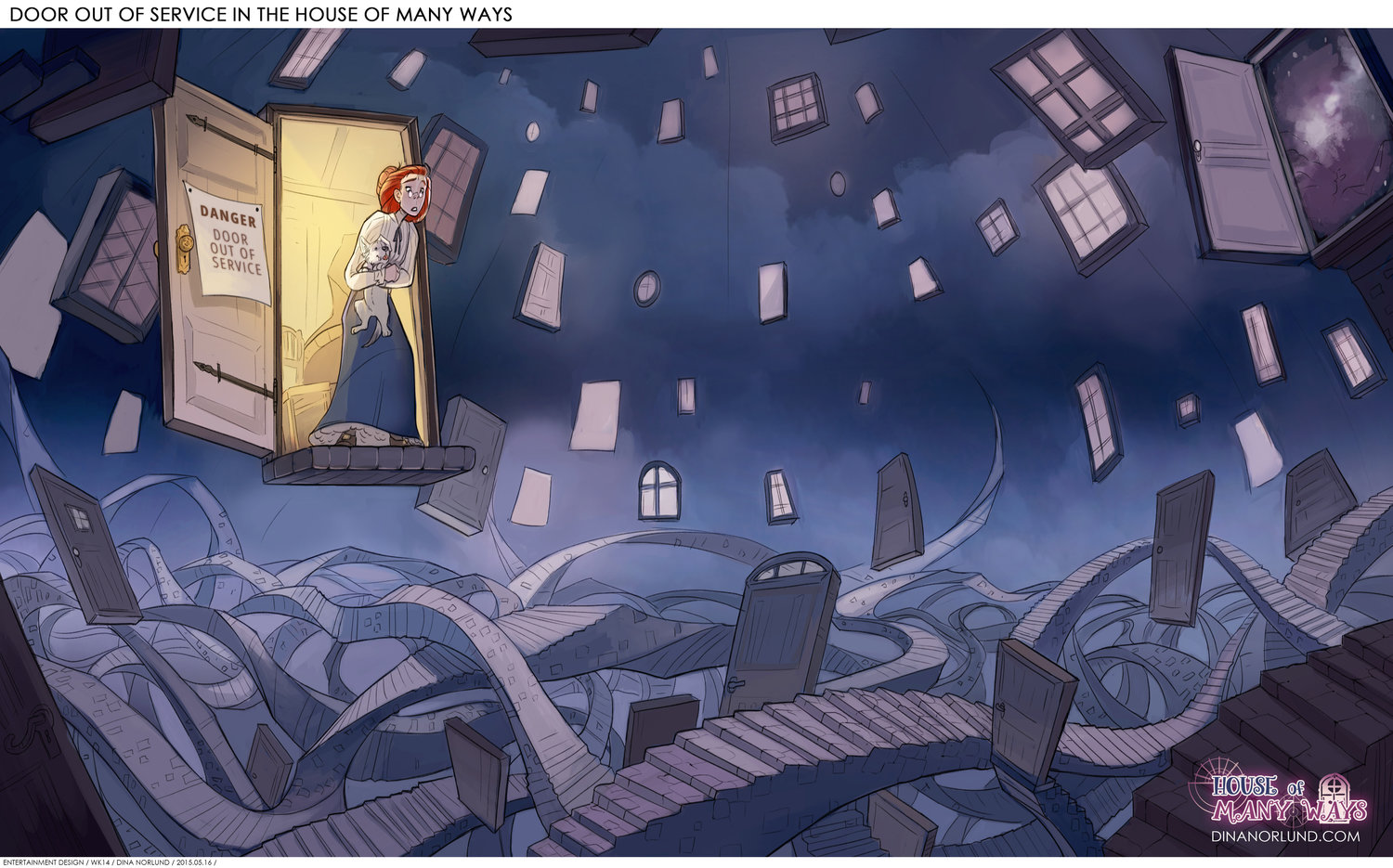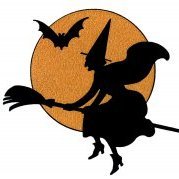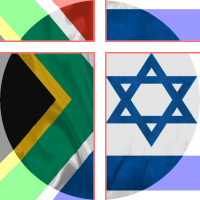-
Posts
1335 -
Joined
-
Last visited
Trutharchivist's Achievements
716
Reputation
-
So, this is another supplemental to my Jewish holidays. But, somewhat unlike the others, this one is about a day that isn't well known or remembered even among Jews: the 20th of Sivan fast, which occurs tomorrow. The reason for this fast not being well known is... well, it isn't much practiced. Apparently, some people even claim it was added only temporarily. But before I dive into why does this fast day exist, I would like to note that incidentally, this day is also the Hebrew birthday of one of my fellow Jewish Sharders - @Silva! So you may go wish her a happy birthday.
Back to the topic, though. What is the story of the 20th of Sivan? Well, it all started in 12th century France, in the city of Blois. It was between the 2nd and 3rd crusades - which themselves weren't very pleasant for Jews. Essentially, there was a Blood Libel.
A Blood Libel, in case you didn't know, was (and maybe still is) a common antisemitic accusation. The basic idea is that Jews kill Christian (or sometimes Muslim) children and drink their blood. Sounds outlandish, right? well, apparently, every medieval European would disagree with you on that, and quite a few modern ones will as well. Usually, Blood Libels occur around Pesach, and the accusation is that Jews bake the blood of Christian children into Matzahs. I find it particularly funny, because Christians technically claim to drink the blood of a Jewish person - Jesus - during mass. I think. Do correct me if I'm wrong about this.
Anyway, the Blood Libel in Blois wasn't the first recorded Blood Libel. That honour (at least when speaking of Europe) goes to the Norwich Blood Libel - an accusation mad by a monk named Thomas against the Jewish population of Norwich, about 30 years before the Blois BL. In short, a Christian child was found dead in the forest, and the Jews were accused. While the government didn't necessarily accept those accusations, there were incidents of violence against Jews following it.
So what was special about the Blood Libel of Blois? Simple. It was the first occasion where local authorities were not only involved, but actively participated. What happened, apparently, was that a Jew went to a nearby river at the same time as a Christian slave. Said slave saw him carrying something that he apparently thought was a body, and went on to tell his master. Significantly, it wasn't that someone was reported absent. It appears that the local nobleman had sizable debts to a rich Jewish widow and wanted her gone. So, based on this little evidence, the local count conducted a trial. Apparently at first he only wanted monetary gain, but then a priest came to convince him that you can't take money in exchange for a murder. So instead he imprisoned thirty of the local Jews and condemned them to death by fire. Fun, right?
Said widow, BTW, apparently was somewhat close to the count and tried convincing him to not burn the 30 Jews. So, predictably, she ended up joining them. There is a legend saying they died saying the Aleinu prayer - a prayer of proclaiming G-d's kingship, essentially. Another legend claims that two of the people in the fire had their bounds burn before dying, so they jumped out and claimed that they were tested by the fire and found righteous. They were promptly thrown back into the fire.
This burning has occured in the 20th of Sivan, so one of the greatest rabbis of the time - Rabenu Tam, as he is widely know, though his name was Rabbi Ya'aqov ben Me'ir - declared this a day of fasting, with special additions to the prayer, etc. He himself died approximately two weeks later.
The fast has been widely accepted by Ashkenazi Jews... for a time. As genararions went, it was slowly forgotten and not practiced anymore. Likely, it was because of how it was dedicated to one event that, while horrible, was somewhat commonplace coming the next couple of centuries. And so, this day remained obscure and forgotten...
Until the 17th century Ukranian uprising.
Historically, this is probably a complex story about political tension between local Orthodox Christians and invading Polish Catholics or something. I'm sure if you ask a Ukranian knowledgeable about their counrty's history they'll be able to tell you more about Bohdan Khmelnytsky and his valiant fight for independance. To me, this is largely irrelevant. What is relevant is that his Cossaks enjoyed murdering Jews on the side - likely due to the fact Jews often served as middlemen between the local noblemen and serfs. That led to some of the worst pogroms in history, called collectively "Pera'ot Taḥ V'Tat", meaning "the pogroms of '408-'409", after the Hebrew years during which they occured. I can't say I know much details, and I don't really want to check too much, so let's just say it ended with about 40,000-50,000 Jews dead through actions of any side of the conflict. So, the local Jewish authority - the Council of Four Lands - declared the 20th of Sivan a fast day again. The reason for choosing that day specifically was due to an invasion to a certain city and a massacre of the Jews there that occured during this day, but it's likely they also remembered the old, defunct fast day and built on it.
That fast wasn't built to last either. It, too, was forgotten - or, well, fell out of practice. Nowadays you will be hard pressed to find people still practicing it. Still, I view this as a good day to talk in more general terms about Antisemitism through the ages.
You see, those are just two occasions. Both incredibly horrible, with the latter being so bad some people thought it was the end-of-days war - I kid you not, G-d willing I'll get to that in my History of Judaism essays. But there were also many other events.
During the 11th century, at the time of the First Crusade, there were calls for killing the heretics across Europe - including Jews. During those events, called Gzerot Tatno in Hebrew or (apparently) the Rhineland Massacres in English, many Jews were forced to choose between conversion and death. Three of the most prominent Jewish congregations of the time - the ones in Speyer, Worms and Meinz - were almost completely destroyed. To this day, we say lamentations on that in Tish'ah b'Av, one written by the prominent Jewsih commentator Rashi who studied in some of those congregations in his youth.
During the time of the Black Plague, Jews were accused of poisoning the wells and causing the plague. Supposedly, less Jews died in it than Christians. It led to massacres of Jews across Germany, including Frankfurt Am Main (which those of you who read my blog might find familiar) and Strasburg - which is significant to me personally, since my family originated from there.
Blood Libels were, as I mentioned, not uncommon antisemitic ploys. The original story of the Golem of Prague was all about protecting Jews from it, and one occured in the Ottoman Empire as late as the 19th century, taking the involvement of rich Western Jews to stop it.
Throughout history Jews were murdered, banished and/or forced to convert by multiple forces, Christian and Muslim alike. Well, usually Christians more than Muslims, but that always depends on the era. There are, though, two misconceptions that might only exist in my head, but that I nevertheless wish to dispell: firstly, the Nazis aren't the be all, end all, inventors of antisemitism. Considering what I just wrote I think you realize how much of an understatement this is. Besides all the shows of antisemitism from medieval Christians, there was also antisemitism among Pagans in ancient times. Those ideas are way older than a national-socialist party in 20th century Germany.
Secondly, antisemitism isn't gone from our wonderfully Westen, enlightened world. It's nice to think that, but antisemitic incidents occured not only through the 20th century, but also during the 20s of the 21st century. Here. Now.
I'm not just referring to the October 7th attack, though I do consider it an incident of antisemitism. Yes, Arabs are also Semites, but the term is used for hatred to the Jewish people and that's how I'm using it. If you want, you can translate "antisemitism" to "Judophobia" or something. Anyway, the point is that besides that, there were incidents of Jews murdered for their ethnicity and religion in modern day Europe. While, admittedly, I did not double check it, I was told that there's a rise in antisemitic incidents through the last couple of months.
So, yeah, this turned from a holiday supplemental post to a somewhat political post, but I think you can see why. These are my people who suffer because of this, around the world. And even if I'm sheltered from some of it by virtue of living in Israel, I still care about what might happen to my brethren in Britain, in France, in Germany, in Sweden, in the USA and Canada. I have literal relatives in some of those countries, some more distant than others, but it's not just that. I care about my people, wherever they are.
Sadly, I don't have any advice for you on how to battle antisemitism. I, myself, can't say I did much to battle it. The most I do is note encountes I have with people who think my nation is somehow responsible for every bad thing that ever happened, or those more subtle ones who claim I'm not really Jewish because it makes them more comfortable with hating me for some reason. But I beg you to remember those two things: antisemitism isn't new, and it didn't go away. It's been something of a constant in the world for centuries now, and stopping it isn't just a matter of stopping white supremacists or Neo-Nazis. It's something deeper, and much harder.
So, for now: Thank you for reading. I hope you have a good day. Oh, and happy birthday, Silva! עד מאה ועשרים!
-
All right. So, I know I said my next supplemental will be in a month, but Jerusalem Day is upon us again and there are some things I'd like to cover that I missed in my previous post. I mean, I did say there that I didn't nearly cover enough, and honestly I'll never be able to completely fix this, but I can add some other stuff I skipped but now I think are important, or things I found out on later.
So, I may have reduced the Crusaders' control of Jerusalem too much - they managed to have it for certain periods, one of 88 years from 1099 to 1187, and another of 15 years between 1229 and 1244. Not too significant, but important. I'm still not getting into the different Muslim rulers - suffice it to say that it was part of the Umayyad Caliphate at first, held by the Seljuks for a short while, ruled by the Ayyubid dynasty and later by the Mamluks, who were later succeeded (that is to say, conquered) by the Ottomans. Which I mistakenly but continually referred to as Othomans in my original post - due to how it's spelled in Hebrew. Either way, I'm intending to talk about them a little today.
You see, Jerusalem was a walled city... For certain portions of its time. It was during the Jebusite era, and King David did not break the walls in order to conquer it. Throughout the days of the Kingdom of Judea, multiple kings have made their effort to keep the city safe. After the breaching of the walls following the Babylonian siege, the city fell into disrepair. It took about a century for the walls to be rebuilt by Nehemiah - but this is the portion of history where the accounting of years is a bit confusing. By the end of the 2nd Temple time, there were apparently three different walls surrounding Jerusalem, most of which built by the Hasmoneans or their non-independant successors, Herod and his descendants. The Romans destroyed them all, obviously. Multiple rulers of the area rebuilt the walls, including at least one Byzantine empress (emperor's wife) and a couple of Muslim rulers. But the walls you can see standing today, surrounding what is known as the Old City, were built by the Ottoman ruler Sultan Suleiman.
There was one legend I vaguely remember about a dream that led him to build it, but I made a habit of not talking too extensively about legends (plus I don't remember it well). Anyway, it is him who gave us those walls, so thanks are due.
If I was slightly less lazy I might've started talking about, say, the various gates; sadly, I am lazy, so I'll just mention that Jaffa Gate is the one through which one enters in order to get to the Western Wall (it's the closest), I think Damascus Gate leads to the Muslim quarter but I might be completely wrong, and the Lions' Gate - which actually has leopards etched over it and not lions - is the one through which the Paratroopers entered when they conquered Jerusalem, and it led somewhat more directly to the Temple mount. While I do live in Jerusalem, I'm pretty sure I entered the old city usually through either Jaffa Gate or Dung Gate (which leads to the Jewish quarter. A pleasant name, don't you think?). I may have went through one or two of the others, I don't really remember. Yeah, I'm not really your first puck as a tourist guide, I'm afraid.
Another point I wanted to touch is something of a theme naming in the Bible - there are two people who are said to be kings of Jerusalem (well, one is Shalem but it's assumed to be Jerusalem), and both of their names end with Zedek, which means justice in Hebrew. Incidentally, Isaiah prophesized that at some point Jerusalem will be called the City of Justice.
Anyway, that's just a random note. And this is because there's something I want to actually focus on today, and that's a certain song: Jerusalem of Gold.
The story of this song starts in 1967. There was some tension brewing up around Israel. Preparations for war were being made, and it was clearly visible. During that time, the mayor of the Israeli half of Jerusalem - Teddy Kollek - wanted to have a song about the city sung at the Israeli Sing Festival. So after some inquiries, he turned to Naomy Shemer to write it.
Now, part of what I'm going to say is based on my memories instead of clear cut facts, but I think Shemer - a prominent songwriter at the time - didn't want to compete in the Festival, which is why her songs weren't much present in it prior to this. She was promised that this song won't be part of the competition, and so she wrote this song - about Jerusalem that is divided.
Three weeks later, the war started. I went over it briefly in my previous SU on the topic, and while it wasn't detailed I'm going to mostly skip it because despite my attempts here I'm not really a historian. Relevant points might include that when Rav Goren - then the chief rabbi of the IDF - got to the Temple Mount he sounded the Shofar, a ram's horn that is ritually blown in during certain events in Judaism. There's also a very famous picture of the Paratroopers at the Western Wall. So, Naomy Shemer was asked to add a verse to the song, to celebrate the reuniting of Jerusalem - which she did.
This song is a big deal in Israel. Most everyone who remembers Jerusalem day will sing it during it. There was a period when it was suggested as a replacement national anthem. Shemer became considered by many (except for herself) as the National Songwriter due to it. And I might not have successfully imparted here the significance of that song, I'm sorry.
I think that will be it for this year about Jerusalem. If I really wanted to get deeply into its history for every year from now on, I'd likely have never finished. My current plan for pseudo historical essays is more about Jews and Judaism, and I intend to post them in my blog - the next one there (once I get around to writing it) will be about Conservative Judaism, then I intend to talk about Sabbateanism and its effects, which is going to be (IMO) an interesting journey. Thank you for reading, and have a good day!
-
Holiday Supplemental 2: Lag BaOmer
Oh, where do I start this...
First, the counting of the Omer. I explained it a bit at the start of my Shavuot piece last year, so you may want to check it out, but basically: the Torah says that in the day after Shabbat - taken by Rabbinic Judaism to actually mean the first day of Pesach (Passover) and not Saturday - we should sacrifice the first sheaf of barley harvested, a sacrifice called the Omer sacrifice. Before this sacrifice it's forbidden to eat from the newly harvested grains. Also from this day forward we count 50 days - seven weeks - until Shavuot. This means that every evening since Pesach ended, in the synagogue, we say how many days has passed since Pesach. Today, for example, is 33 - which is why it's called Lag BaOmer, it's a gematria thing (Lag is how we read the combination of letters ל and ג, which are the equivalents of L and G in pronunciation, though ג is the equivalent of C in Alphabet placement. BaOmer means "in the Omer", so it's basically saying "the 33rd day of the Omer counting").
Now, in addition to the regular counting, for the period since Pesach until today we also practice certain mourning traditions - such as not shave or cut one's hair, not marrying and some people also don't listen to music during this time. Why, I hear you ask? Well, I'm afraid it requires some background.
You see, at the time after the Temple's destruction (about 70 to the Christian count), there was a certain Rabbi called Rabbi Akiva. I can't get into too much about him - suffice it to say that he was very prominent, even though he started studying the Torah at 40 as a condition for marrying his second wife. It's more complex than that, but that's the basic story. Anyway, even after starting that late, Rabbi Akiva managed to teach 12,000 pairs of students - who all died tragically in a plague during the time between Pesach and Shavuot, due to not respecting one another (as a punishment from G-d). So yes, it's them we mourn at this time period, due to a huge loss to the world of Torah studying. Rabbi Akiva, BTW, refused to give up and went to "our Rabbis in the south" to teach five more students - those being Rabbi Yehudah, Rabbi Yosei, Rabbi Shim'on, Rabbi Me'ir and one other that is less certain - either Rabbi Nehemiah or Rabbi El'azar, I think. Those are... How shall I put this... If you open the Mishnah at a random place, go over a few pages and don't see even one of those names - and in this case it's important to note that it's only if there's no father name afterwards, because those names weren't unique but they're the only ones that don't need additional clarification - anyway, if that happens please tell me which tractate it is you opened, I'm fascinated to see it. Another thing is how some of the very basic books of Jewish literature - the Mishnah, the Tosefta, the Sifra and Sifri - each were written by students of one of those rabbis, and whenever in such a book no name is given for something that was said, it was it's respective rabbi who said it (Rabbi Me'ir for the Mishnah, Rabbi Nehemiah for the Tosefta, Rabbi Yehudah for the Sifra and Rabbi Shim'on for the Sifri). So basically, yeah, they're all very prominent rabbis. Maybe one day I'll elaborate on them some more.
But now, if we return to our topic, it's easy to see that something is odd. If Rabbi Akiva's students died between Pesach and Shavuot, why do we stop the mourning practices today?
The short answer will be that traditionally they stopped dying at that day, which later was also Rabbi Shim'on's date of death. And that's, my friends, is where stuff get weird!
So, I didn't tell you much about Rabbi Akiva or his students yet, but each has (obviously) their own personality. And nearly none is known more than Rabbi Shim'on. This guy has a thing against the Roman Empire - rightly thinking them selfish - and wasn't afraid to say that (though not publicly, someone snitched on him). He was sure the world revolves around studying the Torah to the level of considering working for a living problematic as it takes you away from studying. Well, not exactly, but you can take what he said to that extreme. Anyway, while on the run from the Romans because apparently they can't take an insult he went to stay in a cave for 13 years and study Torah all day, more or less. He even had a miraculous Carob tree and fountain to take care of his physical needs.
In addition to that he had a somewhat high opinion of himself, you could say. Not to the level of disrespecting his fellow rabbis, apparently, but... There are certain things said in his name that indicate he was very certain of his righteousness, let's leave it at that.
All that is fine and all, but he became really popular only once in the 13th century, when Rabbi Moshe Di León - a Spanish-Jewish Kabbalah student - claimed to have found a book by Rabbi Shim'on called the Zohar. So, umm...
All right, let me get it off: I'm no expert in Kabbalah. I know a thing or two from here and there, but I don't know much about it. It is possible that Rabbi Shim'on always was a traditional important figure in studying it. I also don't want to talk too much about whether the Zohar really was written by Rabbi Shim'on. Most researchers agree that it wasn't, but many Orthodox Jews still wholeheartedly believe it was.
To my understanding, the Zohar is the source of some legends centered around Rabbi Shim'on - not the cave one, that's from the Talmud, but stuff like "when he died a pillar of fire appeared on his deathbed". Those things later evolved into a Jewish tradition of lighting campfires at this day. In addition, during most years people pilgrimage to his supposed burial site - not this year due to security issues. Rabbi Shim'on is considered one of the first prominent teachers of Kabbalah and for some reason became very popular - only another person in the list of "people who were pretty harsh originally but became popular later", along with Eliyahu the Prophet. Yeah, I mean the guy who killed 400 priests in one day. That guy's very popular, and not because of this story.
Anyway, I'm sure some of my fellow Jews here will be shocked at how little I talked about Rabbi Shim'on. You didn't even get the entirety of the cave story! But it's kind of long and I don't currently have the willpower to explain it.
Another Lag BaOmer tradition is shooting with bows and arrows - more accurately, children playing with those. This one is slightly defunct nowadays, as children enjoy collecting firewood instead (for over five weeks before Lag BaOmer. It can be a menace sometimes). There are some who tie it to the Bar Kokhva revolt - a Jewish uprising at the time of Rabbi Akiva (around 130 in the Christian calendar) following some actions of the Roman Emperor of the time in Jerusalem (trying to found a pagan temple on the ruins of the Jewish Temple). The Revolt was led by Shim'on ben Koseba, who Rabbi Akiva thought was the Messiah and was due to that nicknamed bar Kokhva, "son of a star". He successfully repelled the Romans for a short while and founded an independent kingdom in Judea that lasted for three years - believed by many to be the last Jewish independence in the land until the State of Israel. But, unsurprisingly, the Romans managed to regroup and squash the rebellion, with the last city left standing being one called Beitar, in which Bar Kokhva himself stayed. This city too fell to the Romans (during the 9th of Av, traditionally), Bar Kokhva died, and that was the end of it.
Except for, you know, the fact that for six days the Jews weren't allowed to go over there and bury their dead. Oh, and the fact that Judea was devastated by the fighting and many people had to move north to the Galilee - which is still a part of Provincia Judea, but a different region.
Anyway, yeah! Let's just leave you with that to ponder. Also, just in case someone will be confused: this is before Constantine. Christianity was still very young and in development. The early Christians likely opposed Bar Kokhva since he considered himself a Messiah, and most of them were still Jewish.
All this likely doesn't cover Lag BaOmer all that well. The issue is, I come from a family that's mostly skeptical of Kabbalah and is relatively rationalistic. Due to that, my experience with this day is very different from that of my peers. For example, going to Rabbi Shim'on's burial site isn't something I did very often and I don't find it too important a site - in addition to the fact it was discovered roughly at the 16th century, so it's really dubious. I should probably help differentiating Bar Kokhva from Rabbi Shim'on - rabbi Shim'on is also known as Bar Yohai, the son of Yohai, so they're two different figures even if they share a first name. Another random note - Bar Kokhva was taken by modern secular Zionists as a symbol, so they tended to glorify him. Pretty funny when you consider that his revolt's original purpose was likely to refound the Temple.
Anyway, that's it for today. The short version is: today is Lag BaOmer, during which we light campfires and sometimes children play with bows. The reason for the former having something to do with the death day of Rabbi Shim'on bar Yohai - a prominent rabbi from the first/second century who is credited as the writer of an important Kabbalah book - which for some reason is celebrated. The latter might be related to a revolt that occured at roughly the same time. Hope this was informative! Thank you for reading, and have a good day!
-
Holiday SUs Supplementals: Pesach 1.2
The Shabbat during the Holiday and the seventh day
So, trying to make a pattern for future usage here, but don't expect it to last. It won't. Anyway, here I am to talk about a couple of other stuff I missed in the original Pesach SU!
Firstly, during the formation of the holiday SUs I've started talking about the portions of the Torah, Prophets and Writings (the three parts of the Hebrew Bible: the Torah is the Pentateuch, the Prophets include Joshua, Judges, Samuel, Kings, Isaiah, Jeremiah, Ezekiel and the Twelve Prophets, and the Writings include the rest of what you'd call the Old Testament, as long as you don't add any LDS or apocryphal books. And yes, Daniel, Ruth, Psalms and Chronicles aren't part of the Prophets). So, in Pesach, this includes... Umm... From the Torah, most anything that includes a commandment about Pesach. Sukkot is way easier in that regard - it only goes through the sacrifices of each day. Those are completely identical in Pesach, though, so they aren't enough to fill the quota.
From the Prophets - we read of Joshua's Pesach in the first day, during the Shabbat - the Dry Bones Vision of Ezekiel, and during the seventh day... You know what? I'll get to that later.
From the Writings, we read the first of the books called Scrolls in the Hebrew Bible: the Song of Songs. (By now I think I went over all others of the scrolls, which are this, Ruth, Lamentations, Ecclesiastes and Esther. The sharp eyed of you might notice I already said when each of the others was read.)
Why the Song of Songs? Well, as per usual when the actual reason is unclear, I can give two answers off the top of my hat. One is that the Song of Songs is a parable for the love between G-d and the people of Israel, and this story started with the Exodus - which we celebrate in this holiday. The other is that this is the one book in the Bible with descriptions of spring - the season during which the holiday is required to be in. The book itself is an interesting case, because it's easy to claim its contents aren't exactly fitting to be put in the Bible. It was canonized, though, and I'm really not qualified to explain why.
Right. The seventh day, then. What's the deal with it?
Like the first day of the holiday, it has more strict prohibitions on work - weaker than those of a Shabbat, but stronger than those of the mundane days of the holiday, in which we are now. During this day, we read the Song of the Sea (Exodus 14-15) and from the Prophets we read David's Song from Samuel. Why is that, you ask?
In theory, I could go over it the long way, but I'm not exactly in the right state of mind for that currently so I'll just say that according to Jewish tradition that's the day when the Red Sea got torn. It basically goes like this: the Israelites get out of Egypt - supposedly for three days - accompanied by spies for Pharaoh; three days pass and when the Israelites show no sign of returning the spies go back to report; they arrive after three additional days, during which the Israelites change course and end up somewhat closer to Egypt, on what is now known as the Gulf of Suez (probably); Pharaoh doesn't take too long to reach them, and the fun begins.
By which, of course, I mean the Israelite panic and ask Moshe (Moses) if he found Egypt lacking in graves and that's why he took them to doe in the desert. A nation of former slaves, you see, doesn't deal well with their former masters chasing them on chariots. So G-d tells Moshe to tell the Israelites to go forward - yes, into the sea, can you see any other direction? - and meanwhile to hold his staff over the sea, and it will be torn. For an entire night, the Egyptians chased the Israelites with the Pillar of Cloud protecting the latter from the former and a great wind blew to tear the sea open. The Israelites walked through it, the Egyptians followed, G-d told Moshe to hold his staff over the sea again and it will go back to how it was, and when morning broke - so it did.
I'm sure you've heard the story once, so you knew what was coming. And in case you were wondering - yes, the verses do specifically say it all happened during the night. Just saying, people seem to forget that.
Anyway, that's basically it. The seventh day of Pesach is this Monday. For our brethren outside of Israel it lasts another day, during which they read other stuff which I don't think I'll go over. We're still living on unleavened bread here, thank you for asking. And reading. Oh, and have a good day!


.thumb.png.5afeb53c24c681e1d35e3f8ba62a6319.png)










